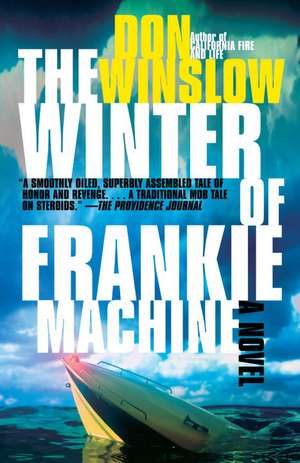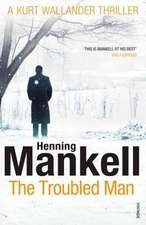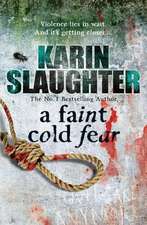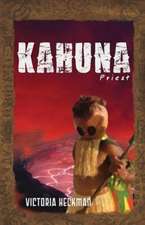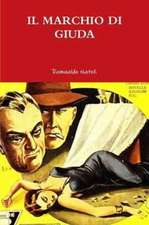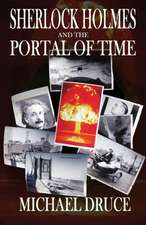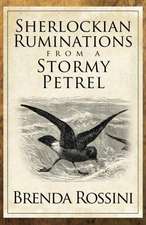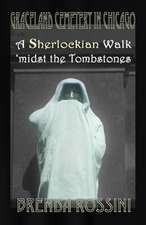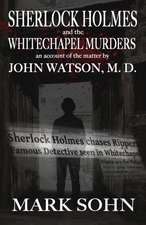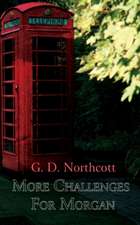The Winter of Frankie Machine
Autor Don Winslowen Limba Engleză Paperback – 31 aug 2007
Vezi toate premiile Carte premiată
Frankie Machianno, a hard-working entrepreneur, passionate lover, part-time surf bum, and full-time dad, is a widely recognized pillar of his waterfront community. He is also a retired hit man. Once better known as Frankie Machine, he was a brutally efficient killer. Now someone from his past wants him dead, and after a botched attempt on his life, Frankie sets out to find his potential killers. However, the list of suspects is longer than the California coastline. With the mob on his heels and the cops on his tail, Frankie hatches a plan to protect his family, save his life, and escape the mob forever. Then things get really complicated.
| Toate formatele și edițiile | Preț | Express |
|---|---|---|
| Paperback (2) | 53.53 lei 23-34 zile | +19.71 lei 6-10 zile |
| Random House – 5 iun 2008 | 53.53 lei 23-34 zile | +19.71 lei 6-10 zile |
| Vintage Books USA – 31 aug 2007 | 91.14 lei 3-5 săpt. |
Preț: 91.14 lei
Nou
17.44€ • 18.94$ • 14.65£
Carte disponibilă
Livrare economică 02-16 aprilie
Specificații
ISBN-10: 0307277666
Pagini: 299
Dimensiuni: 158 x 203 x 20 mm
Greutate: 0.23 kg
Editura: Vintage Books USA
Notă biografică
Extras
It's a lot of work being me.
Is what Frank Machianno thinks when the alarm goes off at 3:45 in the morning. He rolls right out of the rack and feels the cold wooden floor on his feet.
He's right.
It is a lot of work being him.
Frank pads across the wooden floor, which he personally sanded and varnished, and gets into the shower. It only takes him a minute to shower, which is one reason that he keeps his silver hair cut short.
"So it doesn't take long to wash it" is what he tells Donna when she complains about it.
It takes him thirty seconds to dry off; then he wraps the towel around his waist—of which there's a little more these days than he'd like—shaves, and brushes his teeth. His route to the kitchen takes him through his living room, where he picks up a remote, hits a button, and speakers start to blast "Che gelida manina." One of the nice things about living alone—maybe the only good thing about living alone, Frank thinks—is that you can play opera at 4:00 a.m. and not bother anyone. And the house is solid, with thick walls like they used to build in the old days, so Frank's early morning arias don't disturb the neighbors, either.
Frank has a pair of season tickets to the San Diego Opera, and Donna is kind enough to pretend that she really enjoys going with him. She even pretended not to notice when he cried at the end of La Bohème when Mimi died.
Now, as he walks into the kitchen, he sings along with Victoria de los Angeles:
". . . ma quando vien lo sgelo,
"il primo sole e mio
"il primo bacio dell'aprile e mio!
"il primo sole e mio! . . ."
Frank loves his kitchen.
He laid the classic black-and-white floor tile himself and put in the counters and cabinets with the help of a carpenter buddy. He found the old butcher block in an antique store in Little Italy. It was in tough shape when he bought it—dried out and starting to crack—and it took him months of rubbing oil to get it back into prime condition. But he loves it for its flaws, its old chips and scars—"badges of honor," he calls them, from years and years of faithful service.
"See, people used this thing," he told Donna when she asked why he didn't just buy a new one, which he could easily afford. "You get close, you can even smell where they used to chop the garlic."
"Italian men and their mothers," Donna said.
"My mother was a good cook," Frank replied, "but it was my old man who could really cook. He taught me."
And taught him good, Donna thought at the time. Whatever else you want to think about Frank Machianno—such as he can be a genuine pain in the ass—the man can cook. The man also knows how to treat a woman. And maybe the two attributes aren't unrelated. Actually, it was Frank who introduced this idea to her.
"Making love is like making a good sauce," he said to her one night in bed during the "afterglow."
"Frank, quit while you're ahead," she told him.
He didn't. "You have to take your time, use just the right amount of the right spices, savor each one, then slowly turn the heat up until it bubbles."
The unique charm of Frank Machianno, she thought, lying there next to him, is that he just compared your body to a bolognese and you don't kick his ass out of bed. Maybe it's that he really does care so much. She has sat in the car while he's driven back and forth across town, going to five different stores for five different ingredients for a single dish. ("The sausiche is better at Cristafaro's, Donna.") He brings the same attention to detail into the bedroom, and the man can make, shall we say, the sauce bubble.
This morning, like every morning, he takes raw Kona coffee beans from a vacuum-sealed jar and spoons them into the little roaster he bought from one of those chef's catalogs he's always getting in the mail.
Donna gives him endless crap about the coffee bean thing.
"Get an automatic maker with one of those timers," she said. "Then it would be ready when you get out of the shower. You could even sleep a few minutes later."
"But it wouldn't be as good."
"It's a lot of work being you," Donna said.
What can I say? Frank thought. It is.
"You've heard of the phrase 'quality of life'?" he asked her.
"I have," Donna said. "Usually referring to the terminally ill, whether they pull the plug or not."
"This is a quality-of-life issue," Frank replied.
And it is, he thinks this morning as he enjoys the smell of the roasting coffee beans and puts the water on to boil. Quality of life is about the little things—doing them well, doing them right. He takes a small pan from the rack that hangs over the butcher block and puts it on the stovetop. He lays a thin slice of butter in it, and when the butter just starts to bubble, he breaks an egg in the pan, and while it's frying, he slices an onion bagel in half. Then he carefully slips the egg out with a plastic spatula (only plastic—metal would scratch the nonstick surface, which is something Donna can't seem to remember, which is why she's not allowed to cook in Frank's cucina), lays it on one of the slices, puts the other over it, and wraps the egg sandwich in a linen napkin to keep it warm.
Donna, of course, gives him grief about the daily egg.
"It's an egg," he tells her, "not a hand grenade."
"You're sixty-two years old, Frank," she tells him. "You have to watch your cholesterol."
"No, they found that wasn't true about the eggs," he says. "They got a bum rap."
His daughter, Jill, harasses him about it, too. She just graduated premed at UCSD, so of course she knows everything. He tells her otherwise. "You're premed," he says. "When you're med, then you can give me agita about the eggs."
America, Frank thinks—we're the only country in the world afraid of our food.
By the time the lethal egg sandwich is ready, the coffee beans are roasted. He pours them into the grinder for exactly ten seconds, then pours the ground coffee into the French-press maker, pours the boiling water in, and lets it sit for the suggested four minutes.
The minutes aren't wasted.
Frank uses them to get dressed.
"How a civilized human being can get dressed in four minutes is beyond me," Donna has observed.
It's easy, Frank thinks, especially when you lay your clothes out the night before, and you're going to a bait shop. So this morning, he puts on a clean pair of underwear, thick wool socks, a flannel shirt, an old pair of jeans, then sits on the bed and puts on his work boots.
When he goes back into the kitchen, the coffee is ready. He pours it into a metal go cup and takes his first sip.
Frank loves that first taste of coffee. Especially when it's freshly roasted, freshly ground, and freshly made.
Quality of life.
Little things, he thinks, matter.
He puts the lid on the go cup and sets it on the counter as he takes his old hooded sweatshirt from the hook on the wall and puts it on, jams a black wool toque on his head, and takes his car keys and wallet from their assigned place.
Then he takes yesterday's Union-Tribune, from which he's saved the crossword puzzle. He does it late in the morning, when the bait business is slow.
He picks the coffee back up, grabs the egg sandwich, flicks off the stereo, and he's ready to go.
It's winter in San Diego and cold outside.
Okay, relatively cold.
It's not Wisconsin or North Dakota—it's not the painful kind of cold where your engine won't turn over and your face feels like it's going to crack and fall off, but anyplace in the Northern Hemisphere is at least chilly at 4:10 a.m. in January. Especially, Frank thinks as he gets into his Toyota pickup truck, when you're on the wrong side of sixty and it takes a little while for your blood to warm up in the morning.
But Frank loves the early hours. They're his favorite time of the day.
This is his quiet time, the only part of his busy day that's actually tranquil, and he loves to watch the sun come up over the hills east of the city and see the sky over the ocean turn pink as the water changes from black to gray.
But that won't be for a little while.
It's still black out now.
He turns to a local AM station to get the weather report.
Rain and more rain.
A big front moving in from the North Pacific.
He pays half attention as the announcer gives the local news. It's the usual—four more houses in Oceanside have slid down a slope in the mud, the city auditors can't decide if the city is on the verge of bankruptcy or not, and housing prices have risen again.
Then there's the city council scandal—the FBI's Operation G-Sting has resulted in the indictment of four councilmen for taking bribes from strip-club owners to repeal the city ordinance prohibiting "touching" in the clubs. A couple of vice cops have been paid off for looking the other way.
Yeah, it's news and it's not news, Frank thinks. Because San Diego is a port town for the navy, the sex trade has always been a big part of the economy. Bribing a councilman so that a sailor can get a lap dance is practically a civic duty.
But if the FBI wants to waste its time on strippers, it's nothing to Frank.
He hasn't been in a strip club in—what, twenty years?
Frank switches back to the classical station, opens the linen napkin on his lap, and eats his egg sandwich while he drives down to Ocean Beach. He likes that little bite of the onion in the bagel against the taste of the egg and the bitterness of the coffee.
It was Herbie Goldstein, may he rest, who had turned him on to the onion bagel, back in the days when Vegas was still Vegas and not Disney World with crap tables. And back when Herbie, all 375 pounds of him, was an unlikely player and unlikelier ladies' man. They'd been up all night, hitting the shows and clubs with a couple of gorgeous girls, when Herbie had somehow pulled into his orbit. They decided to go out to breakfast, where Herbie talked a reluctant Frank into trying an onion bagel.
"Come on, you guinea," Herbie had said, "stretch your horizons."
That was a good thing Herbie had done for him, because Frank enjoys his onion bagels, but only when he can buy them fresh-made at that little kosher deli up in Hillcrest. Anyway, the onion bagel-egg sandwich is a highlight of his morning routine.
"Normal people sit down to eat breakfast," Donna told him.
"I am sitting down," Frank replied. "Sitting down driving."
What is it Jill calls it? The kids these days think they invented doing more than one thing at a time (they should have tried raising kids in the old days, before the disposable diapers, the washer-dryers, and the microwaves), so they came up with a fancy name for it. Yeah, "multitasking." I'm like the young people, Frank thinks. I'm multitasking.
2
Ocean Beach Pier is the biggest pier in California.
A big capital T of concrete and steel jutting out into the Pacific Ocean, its central stem running for over sixteen hundred feet before its crosspiece branches out to the north and south an almost equal distance. If you decide to walk the entire pier, you're looking at a jaunt of about a mile and a half.
Frank's bait shop, O.B. Bait and Tackle, sits about two-thirds of the way up the stem on the north side, just far enough from the Ocean Beach Pier Café so that the smell from the bait shop doesn't bother the diners and the dining tourists don't bother Frank's regular fishermen.
Actually, a lot of his customers also hit the OBP Cafe on a regular basis for its eggs machaca and lobster omelette. So does Frank, for that matter, a good lobster omelette (okay, any lobster omelette) being a difficult thing to come by. So if there's one right next door, you tend to take advantage of it.
But not at 4:15 in the morning, even though the OBP Cafe is open 24/7. Frank just polishes off his sandwich, parks his van, and walks out to his shop. He could drive out there—he has a pass—but unless he has some equipment or something to bring in, he likes to walk. The ocean at this time of the day is spectacular, especially in winter. The water is a cold slate gray, heavy this morning with the ominous swell of an approaching storm. It's like a pregnant woman this time of year, Frank thinks—full, temperamental, impatient. The waves are already slapping against the concrete support pillars, making little explosions of white water burst into the air below the pier.
Frank likes to think about the long journey that the waves make, starting near Japan and then rolling all the way across thousands of miles of the North Pacific just to break against the pier.
The surfers will be out in force. Not the spongers, the wannabes, or the kooks—they will and should stay onshore and watch. But the real guys, the gunners, will be out for these swells. Big waves, thunder-crushers, that will crash all along the old spots and breaks, which read like a litany in a surfers' church service: Boil, Rockslide, Lescums, Out Ta Sites, Bird Shit, Osprey, Pesky's. Both sides of the OB Pier—south side, north side—then up along the coast—Gage, Avalanche, and Stubs.
Frank gets a kick just reciting the names in his head.
He knows them all—they're sacred places in his life. And those are just the breaks around OB—go farther up the San Diego coast and the litany continues, from north to south: Big Rock, Windansea, Rockpile, Hospital Point, Boomer Beach, Black's Beach, Seaside Reef, Suckouts, Swami's, D Street, Tamarack, and Carlsbad.
These names have magic for a local surfer. They're more than just names—each place holds memories. Frank grew up at these spots, back in the golden sixties, when the San Diego coast was paradise, uncrowded, undeveloped, when there weren't a lot of surfers and you knew practically every guy who went out.
Those were the endless summers.
From the Hardcover edition.
Recenzii
Descriere
Frank Machianno is the guy, a late-middle-aged ex-surf bum who runs a bait shack on the San Diego waterfront. That's when he's not juggling any of his other three part-time jobs or trying to get a quick set in on his long board. He's a beloved fixture of the community, a stand-up businessman, a devoted father to his daughter.
Frank's also a hit man. Well, a retired hit man. Back in the day, when he was one of the most feared members of the West Coast mob, he was known as Frankie Machine.
Years ago, Frank consigned his mob ties to the past, which is where he wants them to stay. But a favour called in by the local boss is one Frank simply can't refuse, and before he knows it he's sucked back into the treacherous currents of his former life. Someone from his past wants him dead, and he has to figure out who, and why, and he has to do it fast.
The problem is that the list of candidates is about the size of his local phone book and Frank's rapidly running out of time...
Premii
- L.A. Times Book Prize Finalist, 2006
